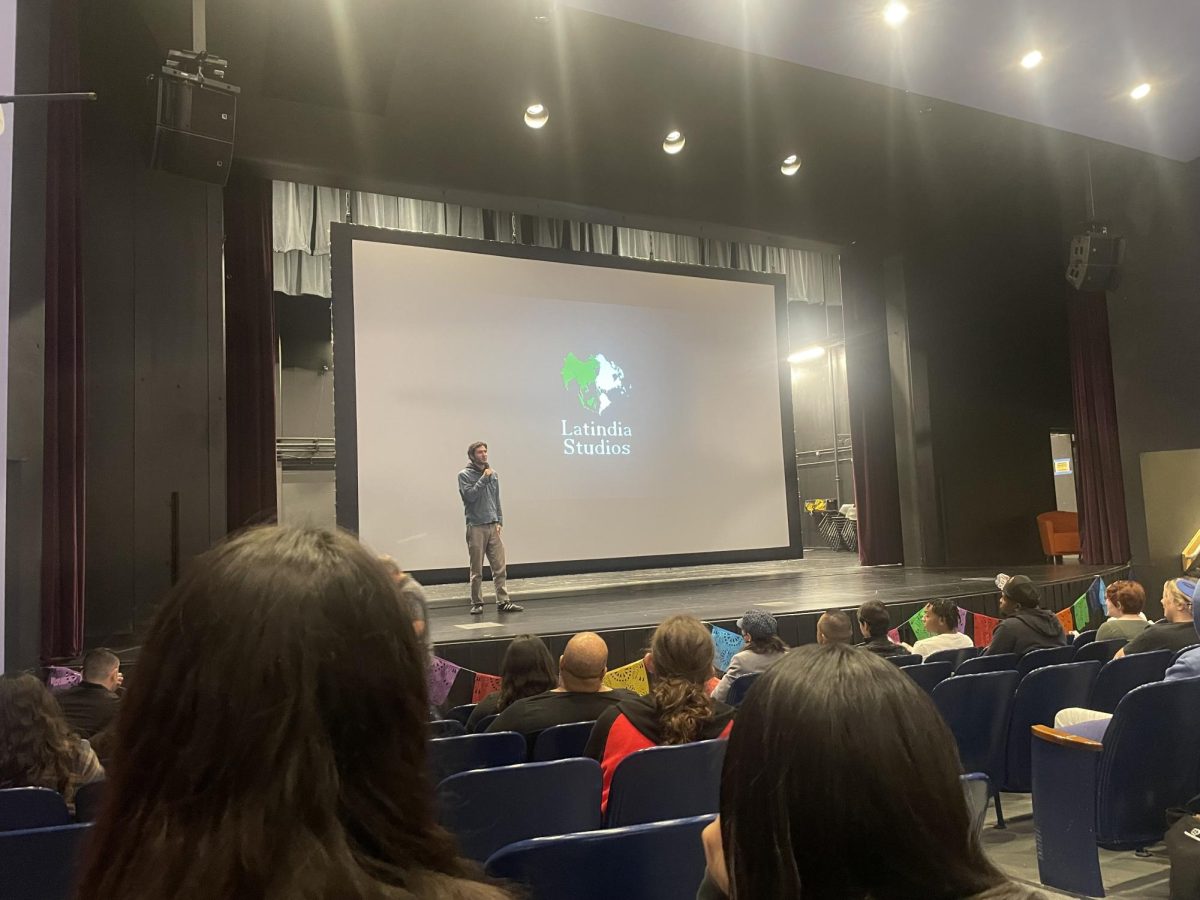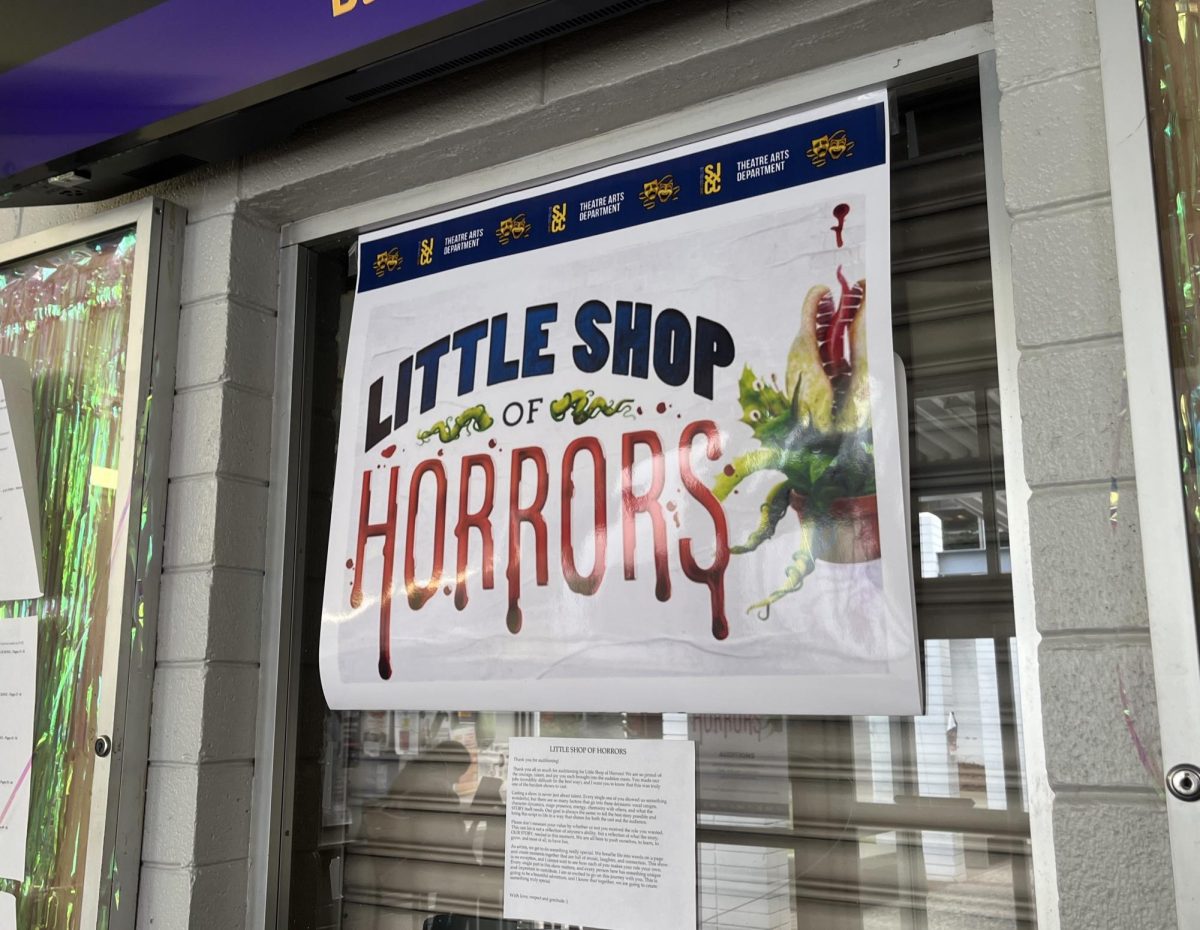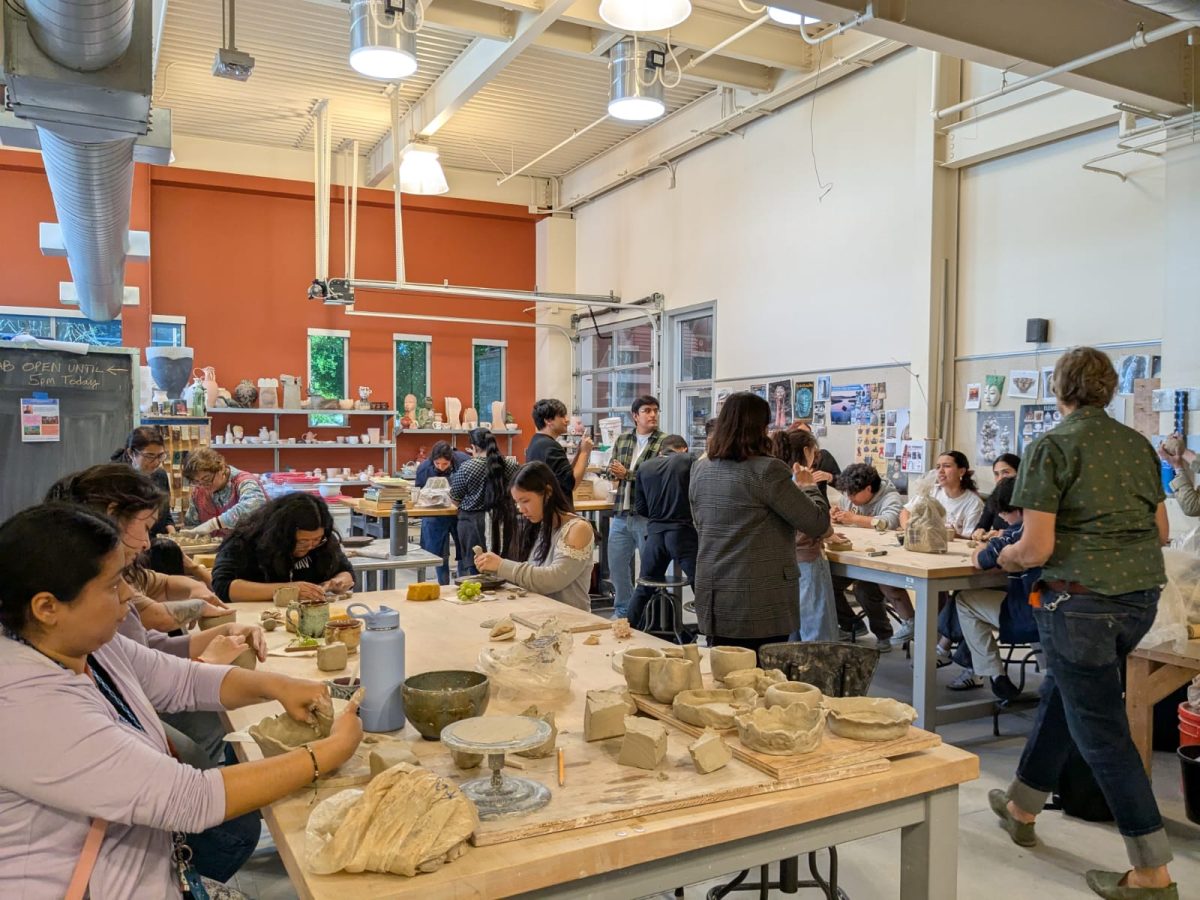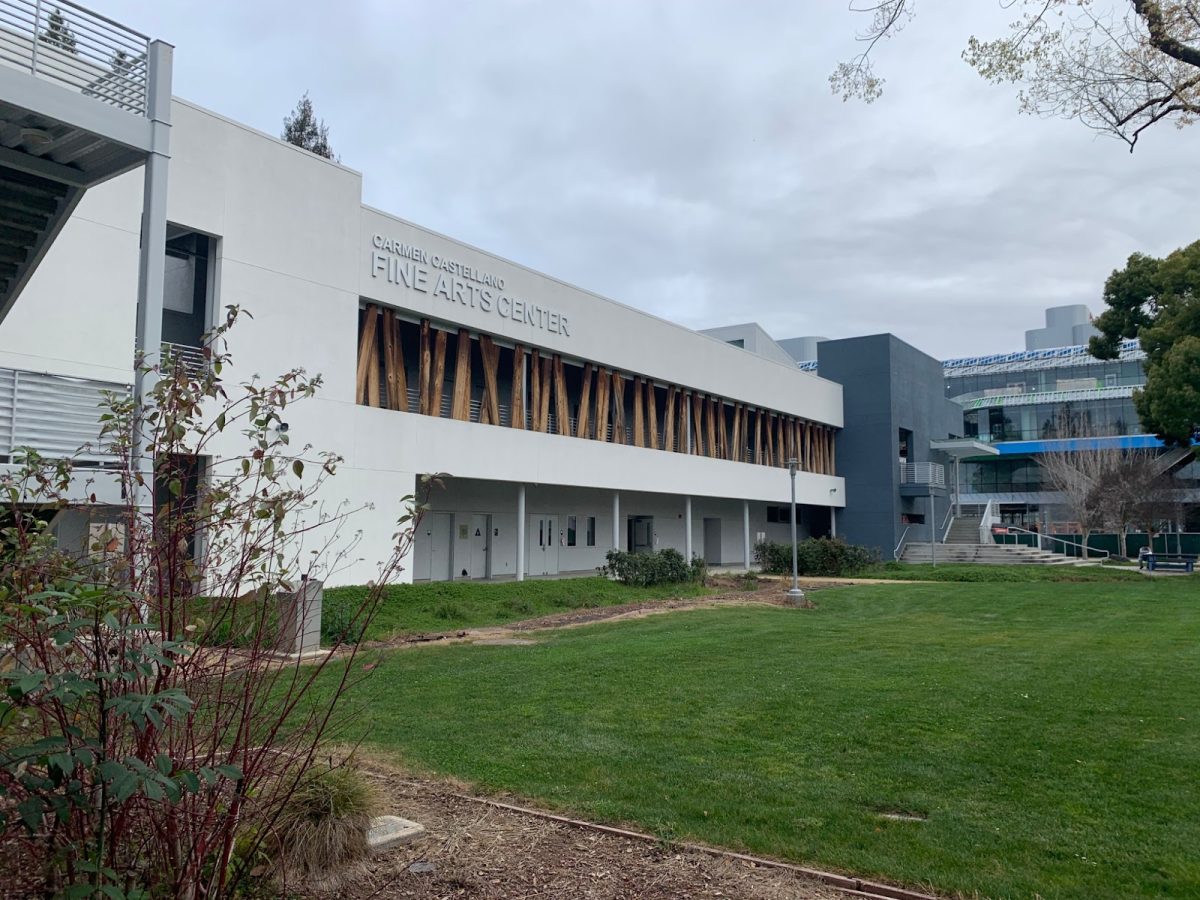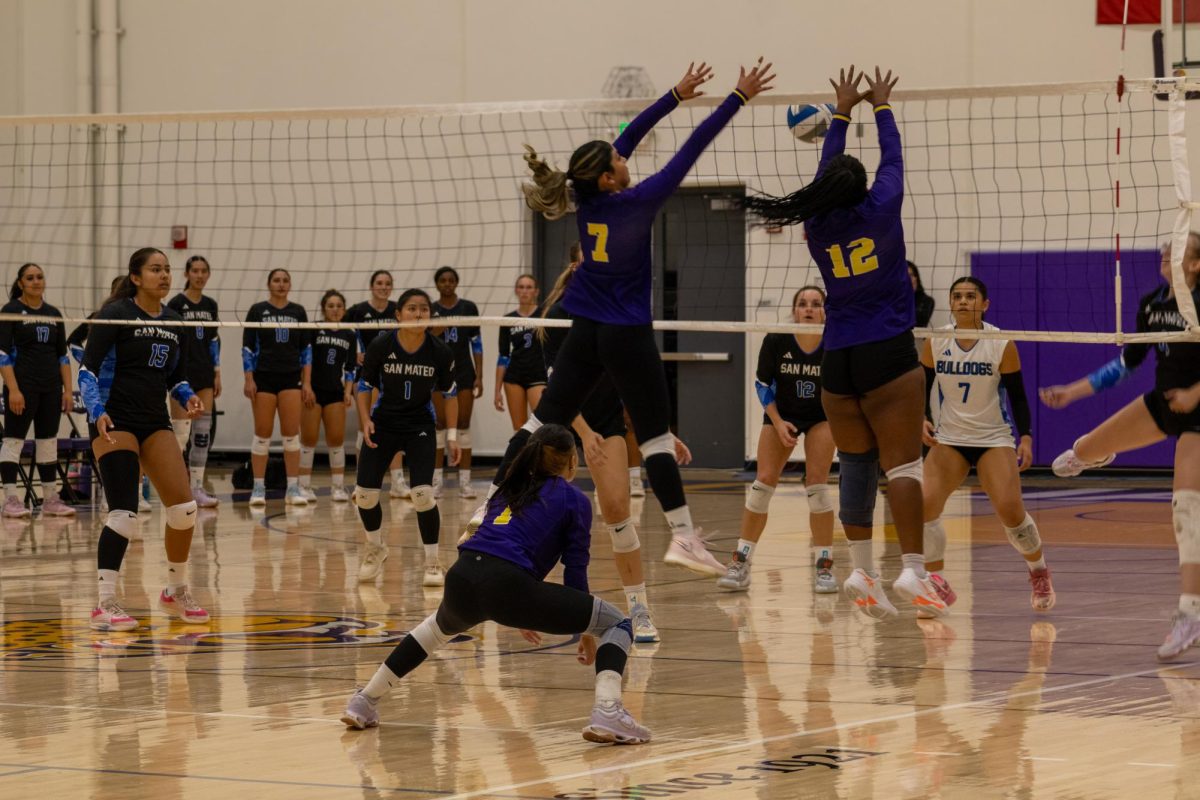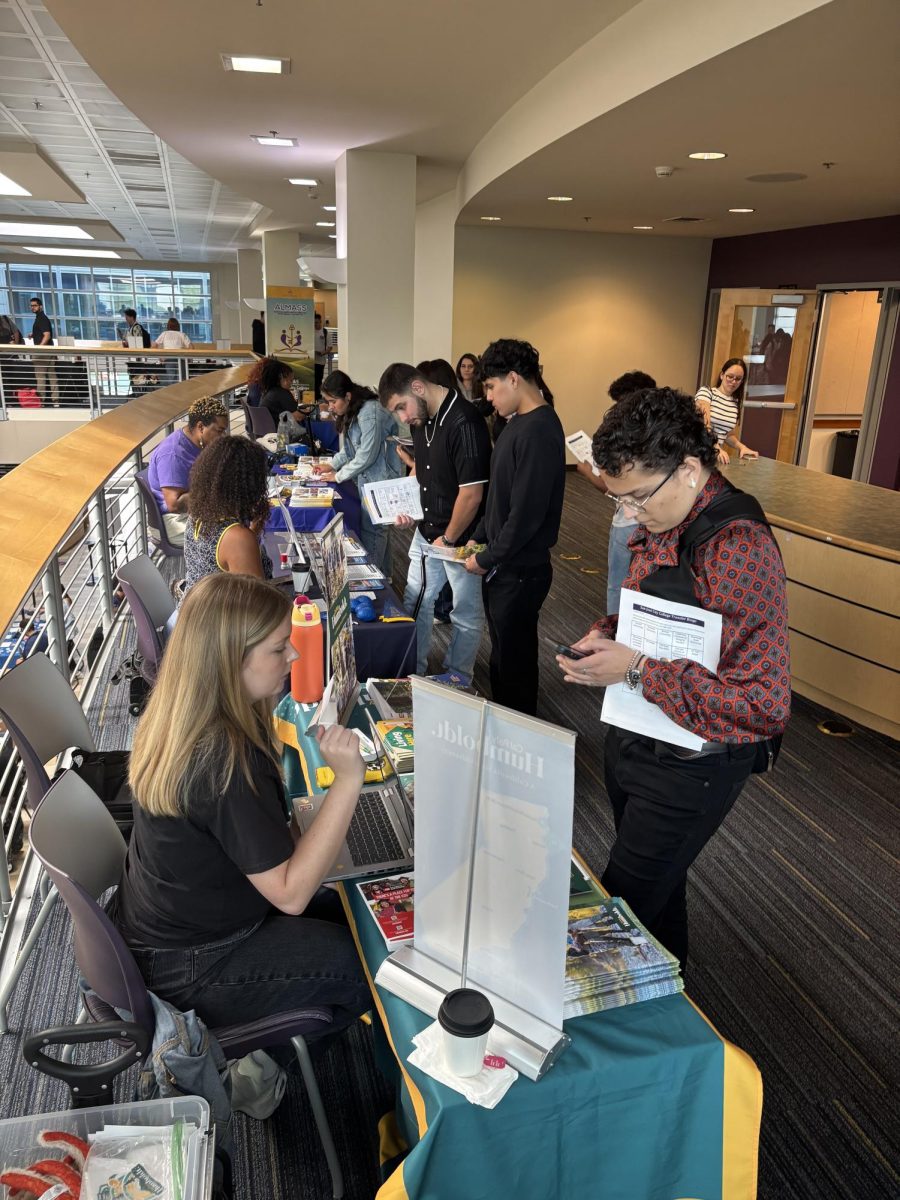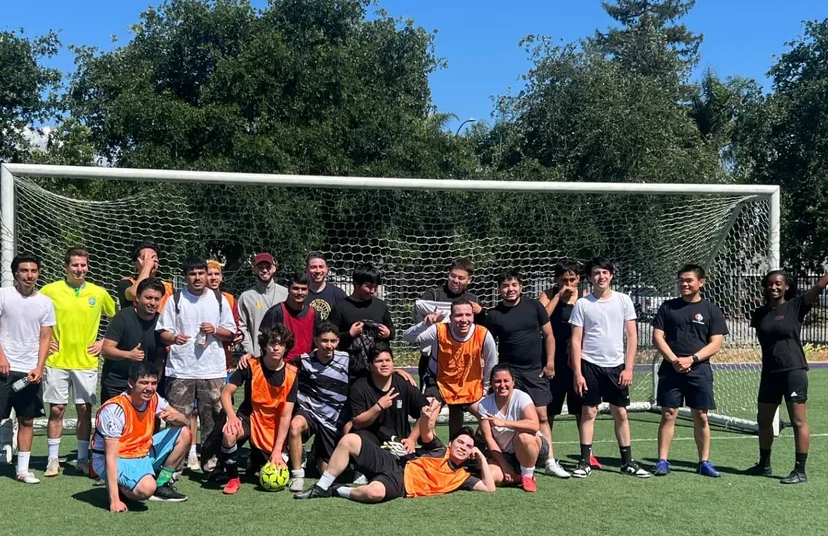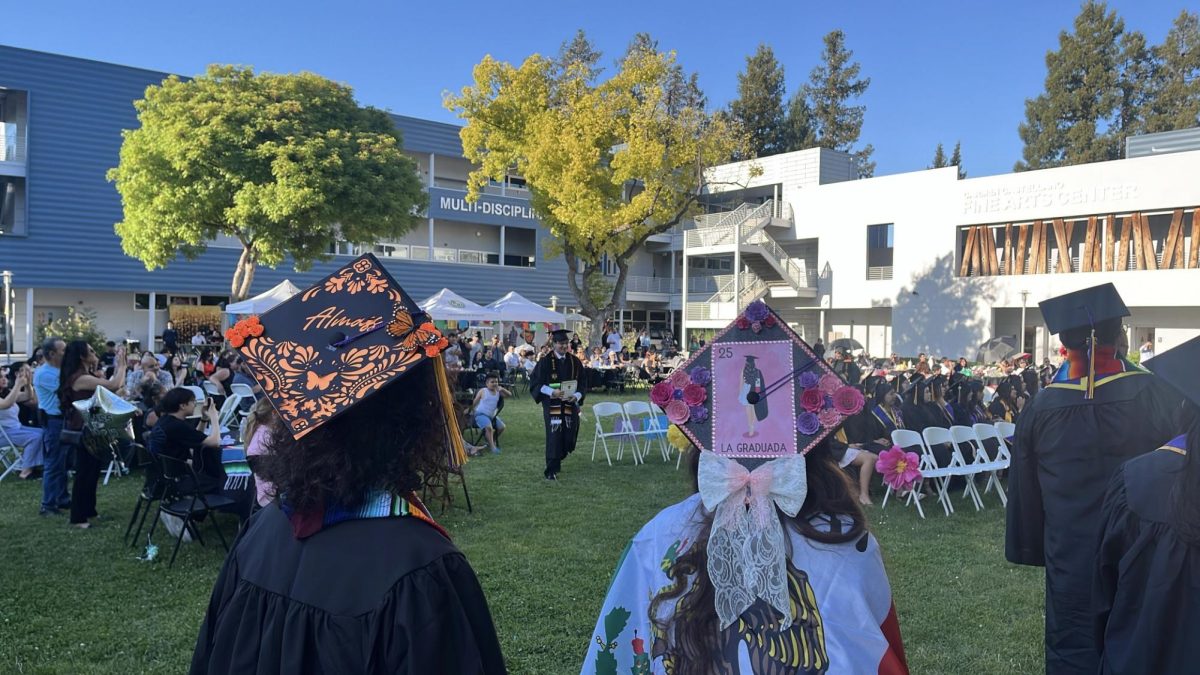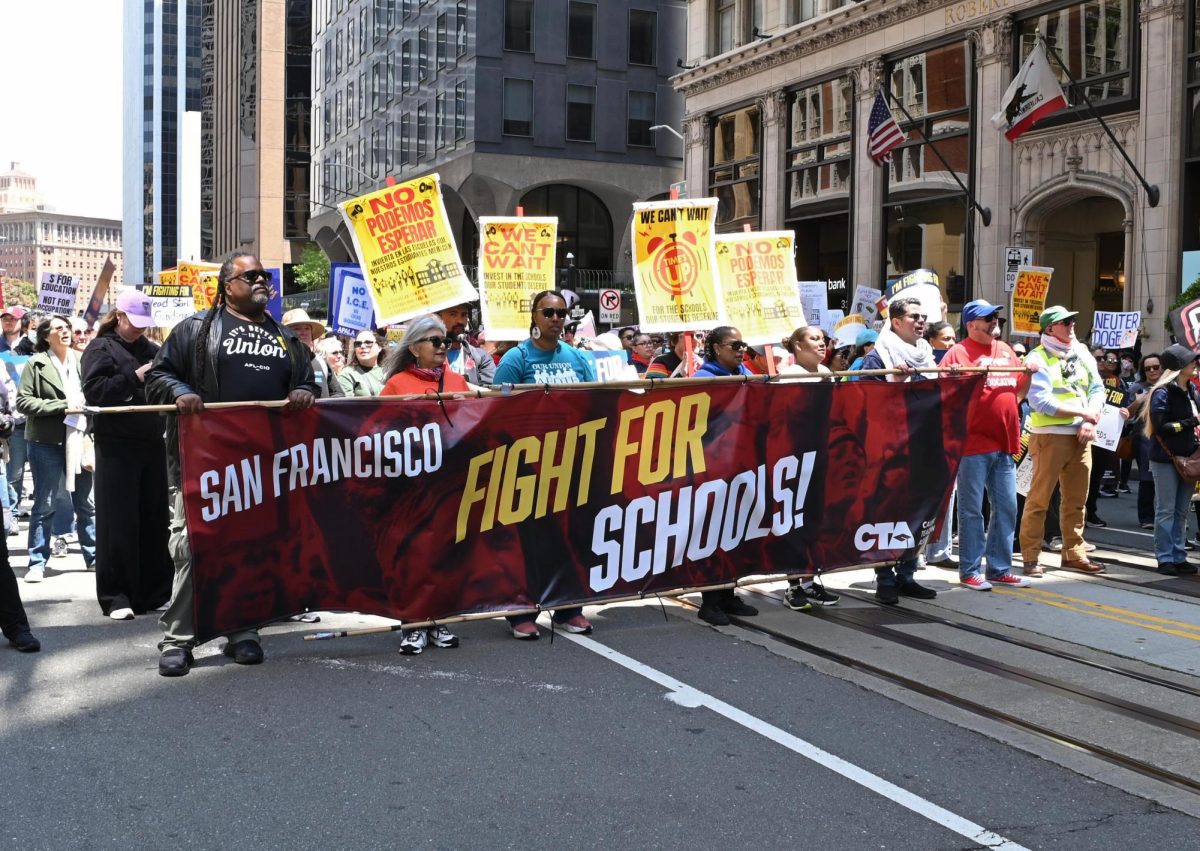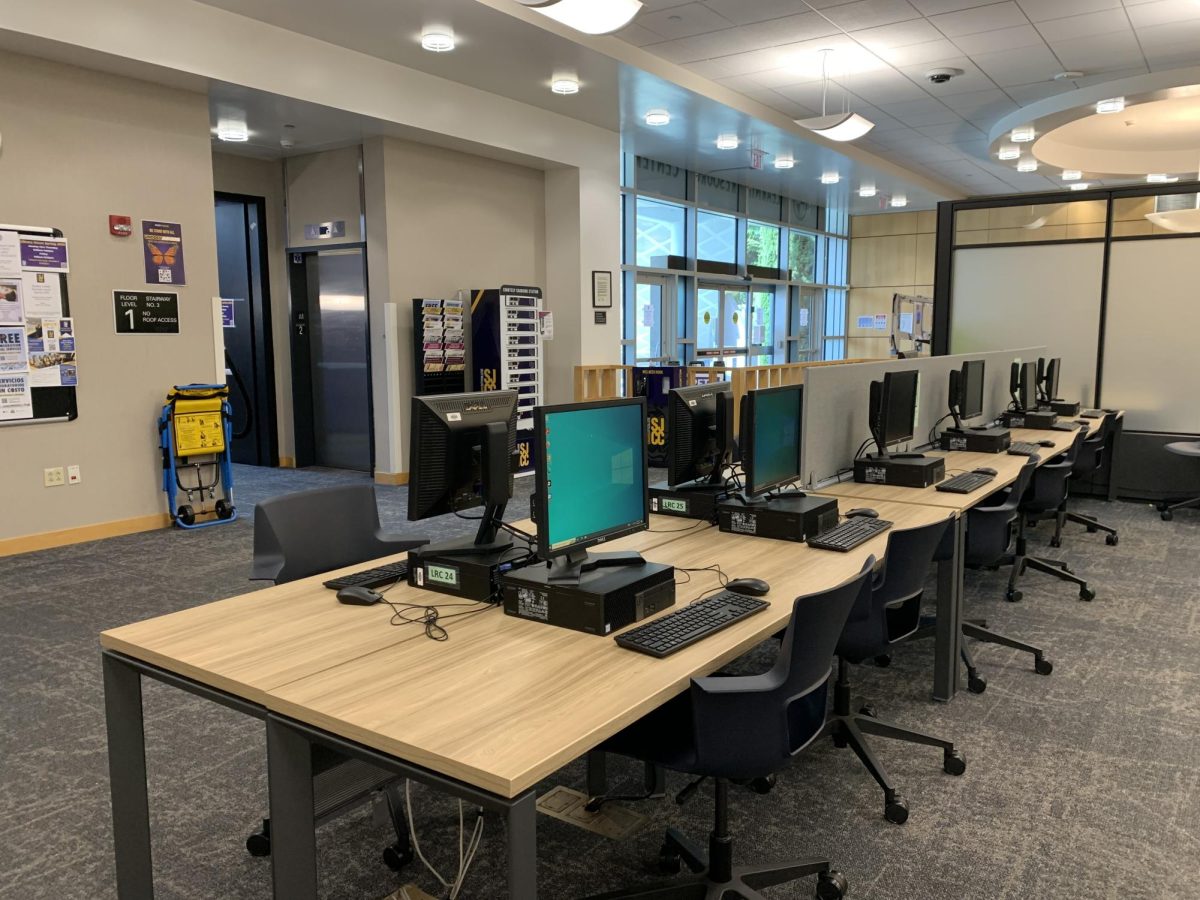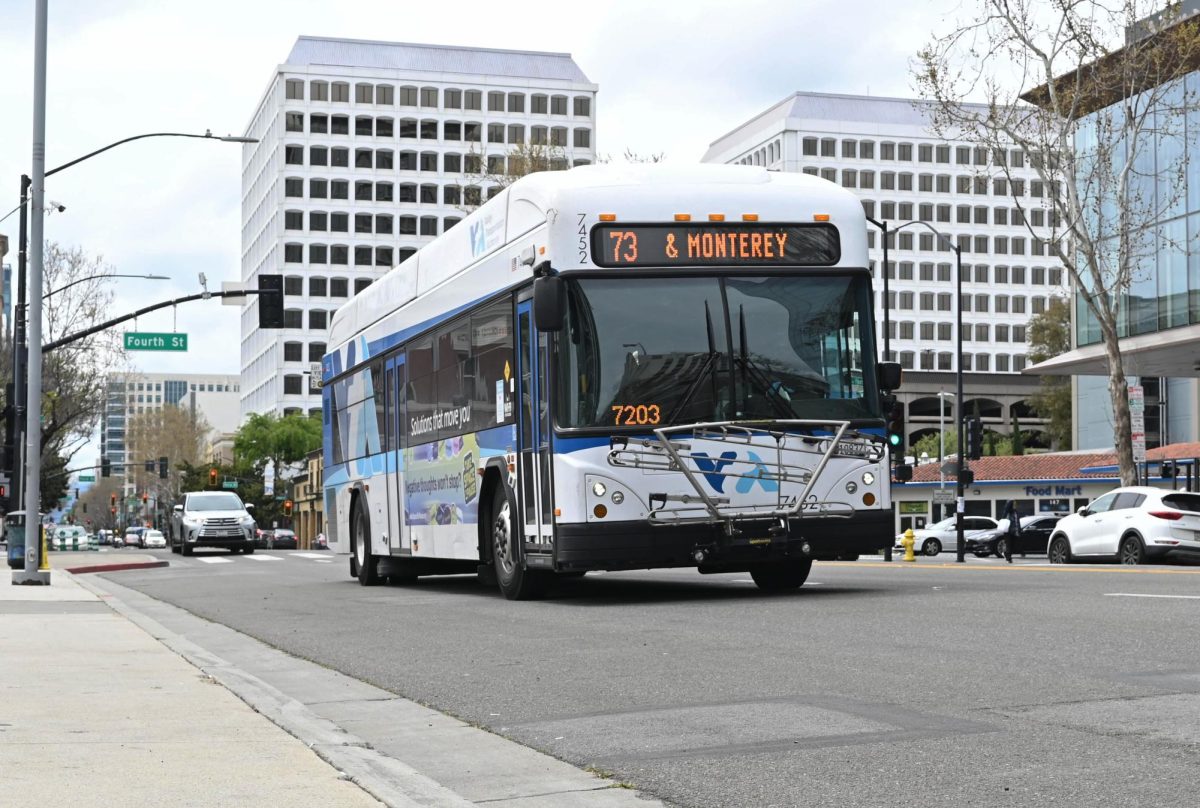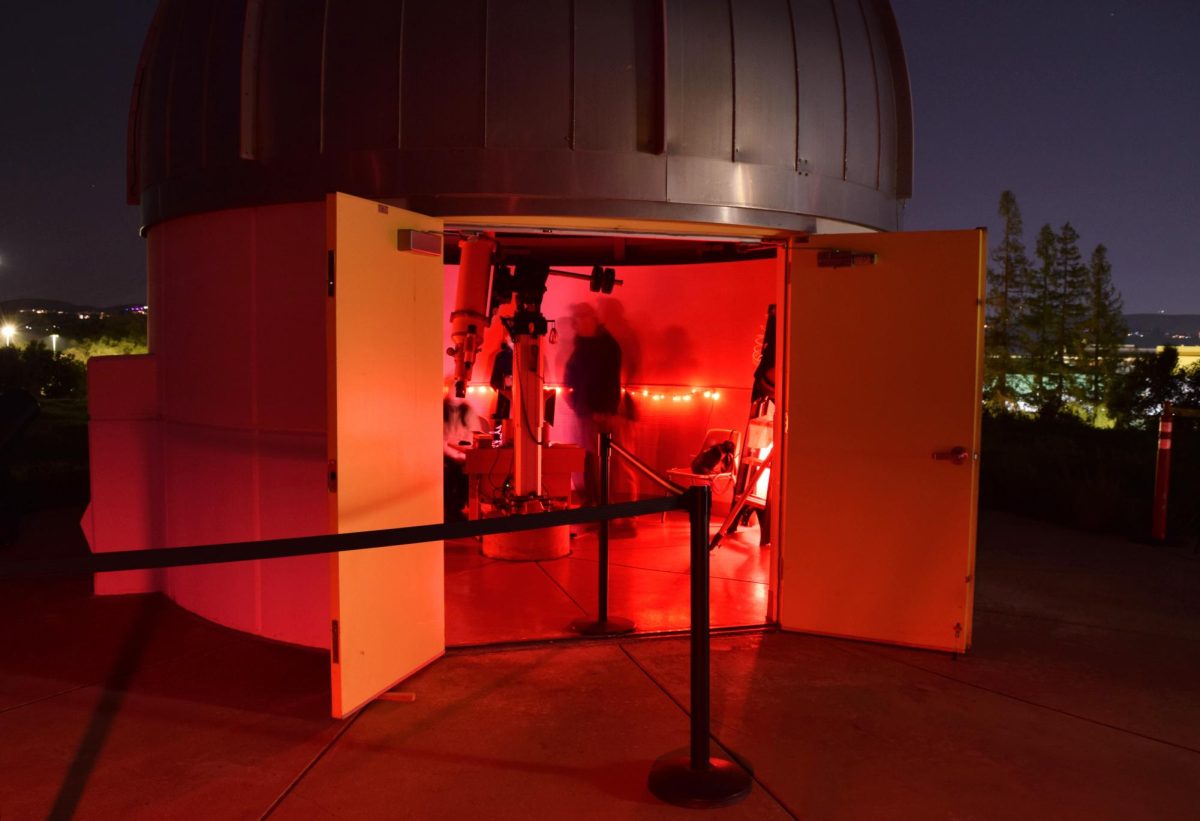San Jose City College held a screening of “Hailing Cesar,” a 2018 documentary directed by Eduardo Chavez, grandson of famed civil rights activist Cesar Chavez at SJCC’s on-campus theatre on Sept. 15.
A crowd of nearly 100 students and staff showed up to watch the documentary, which showcased Eduardo’s experience of visiting farms from Cesar’s youth, which was followed by an interactive Q&A session.
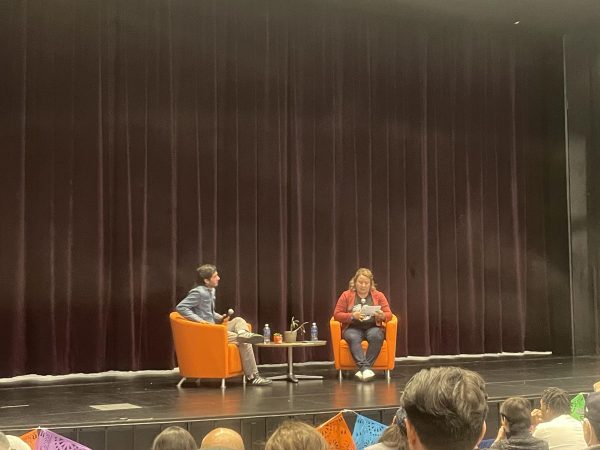
(Mike Guzman)
Eduardo used the film to spotlight laborious farm workers who pick fresh produce and gave eye-opening insight into what life looks like spending weeks on the fields. He said that by producing the film, he hoped to demonstrate the importance of field workers and the often backbreaking work that they do.
“It’s super important for us to understand where our food comes from, ” Chavez told the Times. “So many people are not educated on what the food chain looks like.”
Migrant workers, a group that is predominantly Latino/x, play a pivotal role in the state’s agricultural sector, comprising over three-fourths of the workforce in California, which yields one-eighth of the nation’s yearly food output, a reality that Chavez is well aware of.
“In this country … 99.9% of the time there is either a Latina woman or man using their hands to begin the food chain. That’s the very beginning and that ends on our plate or the grocery store.”
After the film ended, Eduardo took time to detail his journey navigating the pressure tied to a surname such as Chavez and the precedent set by his grandfather.
“When I was a kid I was always compared to my grandfather and [expected] to follow in his footsteps,” Eduardo said. “There is so much power in your history and ancestry and the sacrifices your parents and grandparents made.”
Eduardo expressed that over time, he eventually realized that he did not have to mirror his grandfather and that he could forge his own path, with the film highlighting the generational divide separating young Latino/x communities and Cesar’s weighty legacy.
Eduardo wants to keep educating the youth through his documentary.
According to his website, Eduardo has given hundreds of speaking tours to high schools, colleges and universities across the country, sharing his experience about his family history and the challenges farm workers are still faced with today.
“It was kind of when I found my path in filmmaking and storytelling where I really came into peace with the fact that I’m not my grandfather.” Eduardo said. “I don’t need to be him. My job is to honor his legacy with my own work and passion.”

